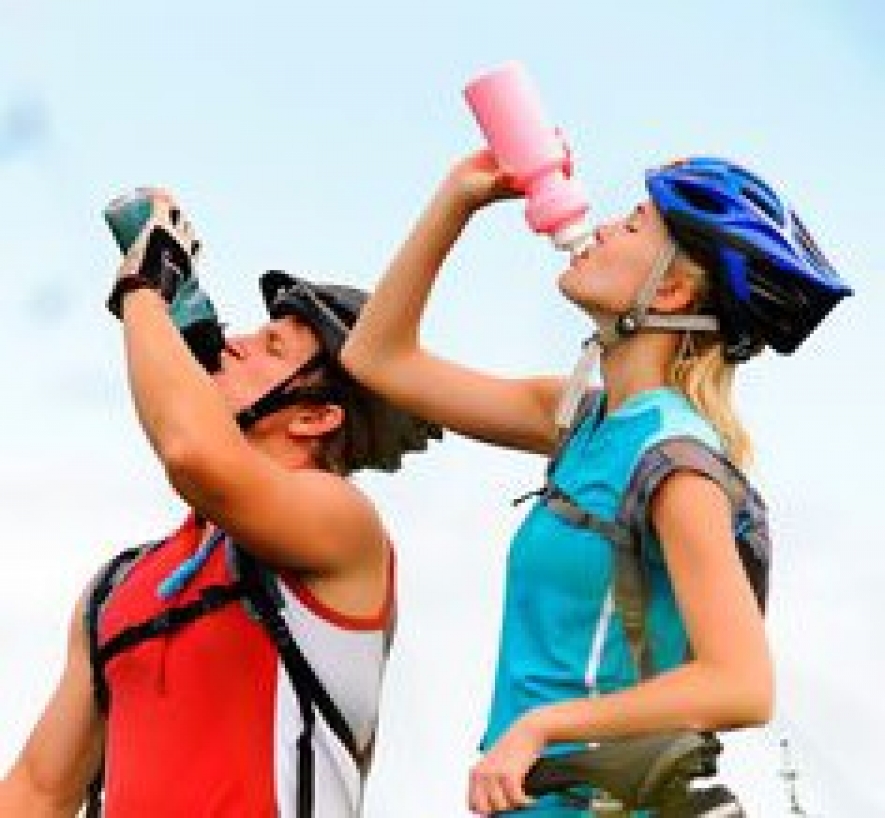The athletes who added this supplement to their usual hydration routines during the competition took 26 minutes less to complete a medium-distance triathlon course than those who only used sports drinks.
Maintaining a suitable balance of water and electrolytes (mainly sodium and chloride) is essential for the functioning of all organs.
Human beings compensate for their daily loss with the water and salts provided by their diet's food and drinks.
"However, doing exercise (especially resistance sports and activities carried out in the heat) can compromise the regulation of water and electrolytes," explains Juan del Coso Garrigós, researcher at the Camilo José Cela University (UCJC) and lead author of a study on the effect of salt on sports performance, to SINC.
Scientists from the Exercise Physiology Laboratory at UCJC have analysed the effectiveness of the salt capsules during a Half Ironman, a medium-distance triathlon race which consists of 1.9 km of swimming, 90 km of cycling and 21.1 km of athletics. Their study has just been published in the 'Scandinavian Journal of Medicine & Science in Sports'.
During the research, a group of triathletes ingested, as well as the rehydration drinks that they usually drank, 12 salt capsules divided into three doses during the competition, with the aim of replacing 71 percent of the sodium lost through sweat.
Their results were compared to those of another group of athletes of the same age, experience and with better times previously in a Half Ironman, who during the competition drank sports drinks and capsules filled with a placebo, and therefore, only replaced 20% of the lost sodium.
The triathletes who had ingested the salt ended the competition 26 minutes before the control group on average. Above all their running and cycling speeds improved.
"This positive effect on performance relates to an increase in the concentration of electrolytes in the blood, making them drink more fluids during the race (as salt stimulates thirst) and improves the water and electrolyte balances during the competition," adds Del Coso.
As the specialist mentions, sports drinks do not replace 100 percent of the electrolytes lost through sweat. Nevertheless, for the majority of sports activities lasting less than two hours, the electrolytes that they do contain are sufficient to maintain performance and avoid imbalances.
Sweating is the main mechanism for losing body heat. Sweat glands filter the blood plasma (which contains 142 milliequivalents per litre (mEq/L) of sodium) to obtain a hypotonic fluid, sweat, which evaporates through the skin and dissipates heat.



















